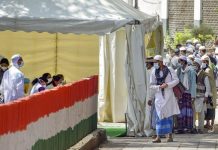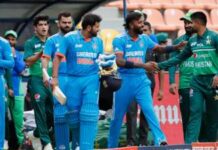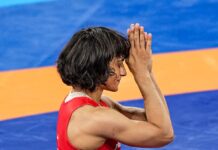Defending and Safeguarding the Community: Muslim Women and the Challenges of the Modi Government:One must not forget that the political fight of the CAA/NPR/NRC is not between the Hindutva ideologues and Muslims as a community, but between them and Muslim women
By Rushda Siddiqui New Delhi
Without counting the dead or assessing the devastation caused by the pandemic, the government Has issued a gazette notification Friday granting powers under existing rules to authorities in 13 districts of Gujarat, Chhattisgarh, Rajasthan, Haryana and Punjab to accept, verify and approve citizenship applications from members of minority communities hailing from Pakistan, Afghanistan and Bangladesh. This, even before the rules for granting citizenship under CAA (2019), have been framed. The first set of rules in the notification give power to the Collectors of selective districts and the secretaries of the Home department of Haryana and Punjab to expedite process of citizenship and naturalisation according to the CAA 2019, if here before 2014.
Interestingly the Collectors of the border districts of Jodhpur, Jaisalmer, which has the highest number of Minorities across the border or Kutch and other districts of Gujarat have not been conferred with the powers. Those powers remain with Home Ministry

The move is guaranteed to get sharp responses, particularly from the liberals and human rights activists in the country and abroad. A lot of analysis is going to go into how this is a move designed specifically for the UP elections. As the communal strife escalates due to the coercive detention and lynching in Muslim dominated pockets on the Western border of the country, the RSS will smell success and BJP taste victory in the rest of the country. As the news about the notification issued on 28 May 2021 seeps in, the challenges before Muslim women start multiplying manifold.
As a human rights activist who works with women, my concern and analysis is tilted more towards the challenges and less towards the opportunities that Muslim women will face as a consequence of this and other similar forthcoming moves. Let there be no doubt about the targeted hatred that the RSS and its ilk have towards Muslim women. While the victimhood is understood as a community issue making women nearly invisible, the tragedy lies in the misogyny of our own community.
We need to step back a little and understand the problem that Hindutva has with Muslim women and why the political leadership peddles lies to taint them as the biggest problem. Studies after studies demonstrate how Savarkar and Golwalkar were threatened by a religion that was not just monotheistic, but was able to pray to an invisible god. The separation of Jews due to their circumcision in Europe, helped the Hindutva lobby focus on a similar community in India. The idea of majoritarianism was part of the ideology that was being crafted keeping the identity of the minority in mind. Anti-Semitism of the West gave raw material to the emerging new religion based on biases and hate.
Not going into details of the nature of fundamentalism that Hindutva represents, as it evolved over time, I am going to focus on the obsession with the suppression of women’s identity and the manner in which the state machinery was used to achieve the goals. The idea that Islam was a bad religion found roots in the social customs practiced by the Muslims. The status of women was a bundle of contradictions that the Hindutva order has been having difficulty grappling with. Only religion to give a percentage of property to daughters, there was guaranteed maintenance and child support after divorce, marrying within the community without consideration of class or occupation was normal, and most importantly the birth of a girl child was not an occasion to lament. The near equality and social welfare safeguards for women were rattling for an ideology that was building its base on the flaws of the other religion. As a result, all literature from the 1900s have focused on the patriarchy practiced by Muslims. Polygamy was a ‘male privilege’, as was the ease of separation.
Interestingly, Muslim men in India have never disappointed their rivals. Compared to the Muslims in any part of the world, Indians chose to focus on their victimhood. They had no qualms adopting practices and customs that flouted religion and everything the religion stood for. Caste, class, dowry, non-payment of mehr, no alimony and cheating women of their rightful inheritance became a norm. There is no denying that discrimination against Muslims as a state practice began with the British after 1857, when they did not allow Muslims entry into Delhi, or ghettoized them. The repression as a state policy however, could have been countered according to most historians, had the educated and the elite focused on adoption of Western education rather than rejection of it. Had there been more schools rather than madarsas, would the fate of the community been different? One can only speculate.
What needs to be understood here is the post-independence Indian state, that was not untouched or unaffected by the ideology of Hindutva and the politics of the Sangh. The Islamophobia was never overt, but it was also not absent. Policy after policy showcased the exclusion of Muslims from the social, economic and political sphere. There is only one report that evaluated the status of Muslims in the country, and that too was extremely damning. Government after government sidelined the Sachar Commission report and refused to take corrective action or even attempt to repair the social wear and tear.
However, it was not the marginalization of the community that strengthened the Sangh or helped it rise as a political giant. It was the usage and repression of the women that proved to be the political trump card. Every case registered against Muslim men, regarding divorces, childcare, inheritance and the role of the Waqf, or any issue that remotely affected women, empowered the Hindutva forces. One needs to understand the politics of rape in Kashmir or the North East in this context. Aware of the rejection and ill-treatment by Muslim men, the men in uniform have been directly or indirectly practicing their brutality on the women. Pogrom after pogrom, the women have been left to pick up the pieces and face a backlash from their own community. The biggest challenge Muslim women faced was not in accessing justice, but in
The most important political battle that the Sangh won, was by misleading Rajiv Gandhi and reversing the judgement on alimony. The fundamentalists of both religions came together to repress the rights of Muslim women. This was a bigger victory than the opening of the gates of the Babri Masjid. The psychological war had been won. It had been proven that Islam is a backward religion that does not deliver justice to its women.
Women of every other religion would be able to get a court mandated alimony and child maintenance, but Muslim women will not. The open condemnation of the Muslim male mentality went a long way in ensuring the rise of AB Vajpai and later Narender Modi.
It is this disparagement that makes the Shaheen Bagh and the anti CAA protests unique. A community that has been visibly been taken to task for being regressive, patriarchal and abusive to its women, suddenly threw up a lot of women who not only asserted their identity, but in a language that the world understood, talked of human rights abuses and the state practice of Islamophobia. Sexually assaulted in the heart of the capital of India, the women did not back down from filing cases. As case after case does not come up for hearing, the women continue with their quiet legal battles.
If the bigotry and the communal face of the Modi government has been unmasked in front of the world, it has been due to the resilience and strength of the women. It is their strength that the CAA seeks to crush. It is their defiance that did not allow the Modi government to celebrate a success called ‘Triple Talaq Act’, as a move that would showcase Modi as the saviour of Muslim women. The bitterness lingers and the fight gets intense.
One must never forget that the political fight of the CAA/NPR/NRC is not between the Hindutva ideologues and Muslims as a community, but between them and Muslim women. The Act is aimed specifically to deprive women of citizenship and inheritance rights. A woman has to prove her identity as a daughter, a wife, a sister, and any other relation that a government official seeks. Her identity will never be established by the simple fact that she was born here. Her marital status will have to be proven not by her family, but by the village panchayat/municipal office. The foreigner’s tribunal in Assam is flooded with cases where the children and husband have been proven to be citizens, but the woman has not. If an Assamese man married a woman from another part of the country, she is automatically a foreigner. The patriarchy of the CAA/NRC is not lost on the Muslim women.
What is more important is the political battle that the women have fought and won. Had it not been for the pandemic and the Delhi pogrom, the government would have been held accountable by national and international human rights forums for their anti-democratic behaviour. The Kissan agitation brought the Islamophobia of the government to the fore once again. The repeated question that the government could hold a series of dialogues with the farmers, but had not talked to the women, is something that the government is floundering to answer. The fact that the women led movement, that was able to galvanize millions of students and activists across the country, met with violence in all student campuses and public squares across major cities in the country, has been noticed globally. It is the failure of the CAA movement that is proving to be a failure of the Modi government. It has led to scrutinizing every move that the government is making.
By issuing the notification on the 28th, the government is trying to take advantage of the pandemic and push its political gameplan, aware that the reactionary movement will not be of the same magnitude and strength as the previous one. It is counting on its history of brutality and repression to push forward a political agenda and challenging the women to respond.
However, it is the response of the community as a whole that will now decide their fate. We need to admit that we are not trained or even instinctively tuned sensing danger and responding. We find it beneath our dignity to learn from other religions and communities. We seek refuge in the history of Islam. As a result, there is a very strong chance that we will be crushed as a community. Those who can afford, will migrate and flee, leaving the rest to bear the brunt. We need to learn from the Jews to excel in Western education, religious education and practice can take a lower priority. We need to educate ourselves in legal and scientific education. Recognize the women who have acquired legal knowledge and support them. Most important, let the women lead. Do not tell them to be conformist. Recognize their potential to put the issue of justice on the global agenda, and let them lead. (The writer is a social science researcher and executive member of the National Federation of Indian Women, New Delhi. Views are personal)
(www.siyasat.net is Ahmedabad, Gujarat, India based Website, powered by Gujarat siyasat, a Fortnightly)
An Appeal For The Sake Of Upright & Fearless Brand Of Journalism
To sustain and improve our coverage. Gujarat siyasat- a vernacular Fortnightly and English٫ Hindi Website www.siyasat.net
Your little but timely support is needed۔
Bank details، GUJARAT SIYASAT, Current Account 204720110000318, ifsc code BKID0002047 BANK OF INDIA , VASNA BRANCH, AHMEDABAD GUJARAT INDIA
Also on Phone pay, Paytm,Google pay +91 9925531111
We hope you help and see siyasat.net grow. And rejoice that your contribution has made it possible.
सत्य को ज़िंदा रखने की इस मुहिम में आपका सहयोग बेहद ज़रूरी है। आपसे मिली सहयोग राशि हमारे लिए संजीवनी का कार्य करेगी और हमे इस मार्ग पर निरंतर चलने के लिए प्रेरित करेगी। याद रखिये ! सत्य विचलित हो सकता है पराजित नहीं।
Regards,
Abdulhafiz Lakhani
Ahmedabad GUJARAT,India

































